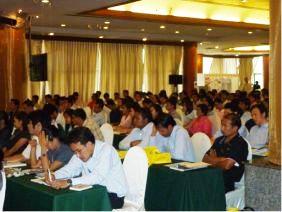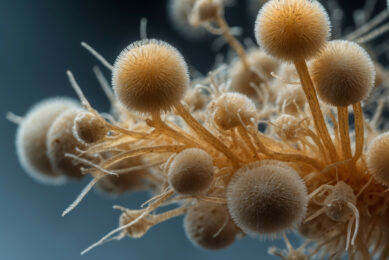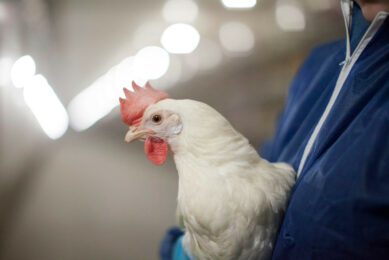Successful seminars for Norel Animal Nutrition in Asia

More than 500 delegates attended the series of seminars “Maintaining the intestinal integrity and improving broiler and breeder performance through effective control of Salmonella and other Enterobacteria” recently organized by Norel Animal Nutrition and its local partners in Thailand, Philippines and Indonesia.
The largest crowd was seen in Thailand, where Dr. Jiroj Sasipreeyajan, Professor of Avian Medicine at the Faculty of Veterinary Science, Chulalongkorn University (Thailand), focused his speech on the consequences, at the farm and consumer levels, of infection with different strains of Salmonella.
In Manila (Philippines), the audience could listen to a very interesting presentation from Dr. Mildred Padilla, Professor at University of the Philippines Los Banos, Department of Veterinary Paraclinical Sciences, College of Veterinary Medicine.
Dr. Padilla reviewed the different food borne diseases encountered in the Philippines and also discussed surveys made in the country on the incidence of pathogens in farms and feeds.
Last but not least, in Jakarta (Indonesia), Prof. Drh. Charles Rangga Tabbu from the Gadjah Mada University of Veterinary Studies, Yogyakarta, Indonesia, made a very complete review of the pathogens affecting poultry in the archipelago, and how they can threaten birds but also humans.
Pathogen control
The keynote speaker for those seminars was British poultry veterinarian Dr. Nigel Horrox, a prominent consultant in the poultry industry.
In his presentation, he explained that control of pathogens on the farm should be centred around increasing the bird’s resistance to infection (vaccination), stopping its introduction via the feed (e.g. acid treatments) or other routes (biosecurity) and minimising the stresses birds encounter, as stressed birds are more prone to infections.
When it came to biosecurity he stressed the importance of only letting on to the farm those things that are essential for the operation of the farm and in such cases management should see what can be done to eliminate or, failing this, reduce the risk of such items introducing pathogens.
He likened the various components of biosecurity to a chain in that biosecurity is only ‘as good as the weakest link in a chain’.
Horrox concluded by looking at various facets of biosecurity including people, vehicles, wild birds, vermin, lizards, insects, bedding materials, water supply and equipment going on to the farm and what could be done to eliminate or lessen the risks that these present to the flock.
He stressed the importance of making the poultry houses and the areas around them unattractive for vermin, wild birds, lizards and insects.
Gut health
Finally, Mathieu Cortyl, Manager Asia Pacific for Norel Animal Nutrition, focused his talk around the importance of gut health and integrity.
Delivering the best feed makes sense only if it is correctly digested and absorbed, and if pathogens are correctly controlled.
A review of feed additives that can help in this respect was made with a focus on organic acids including sodium butyrate (Gustor) and probiotics like Ecobiol.
Their benefits at gut level and the positive consequences for the producer were reviewed. Trial data with economical calculations were presented.











